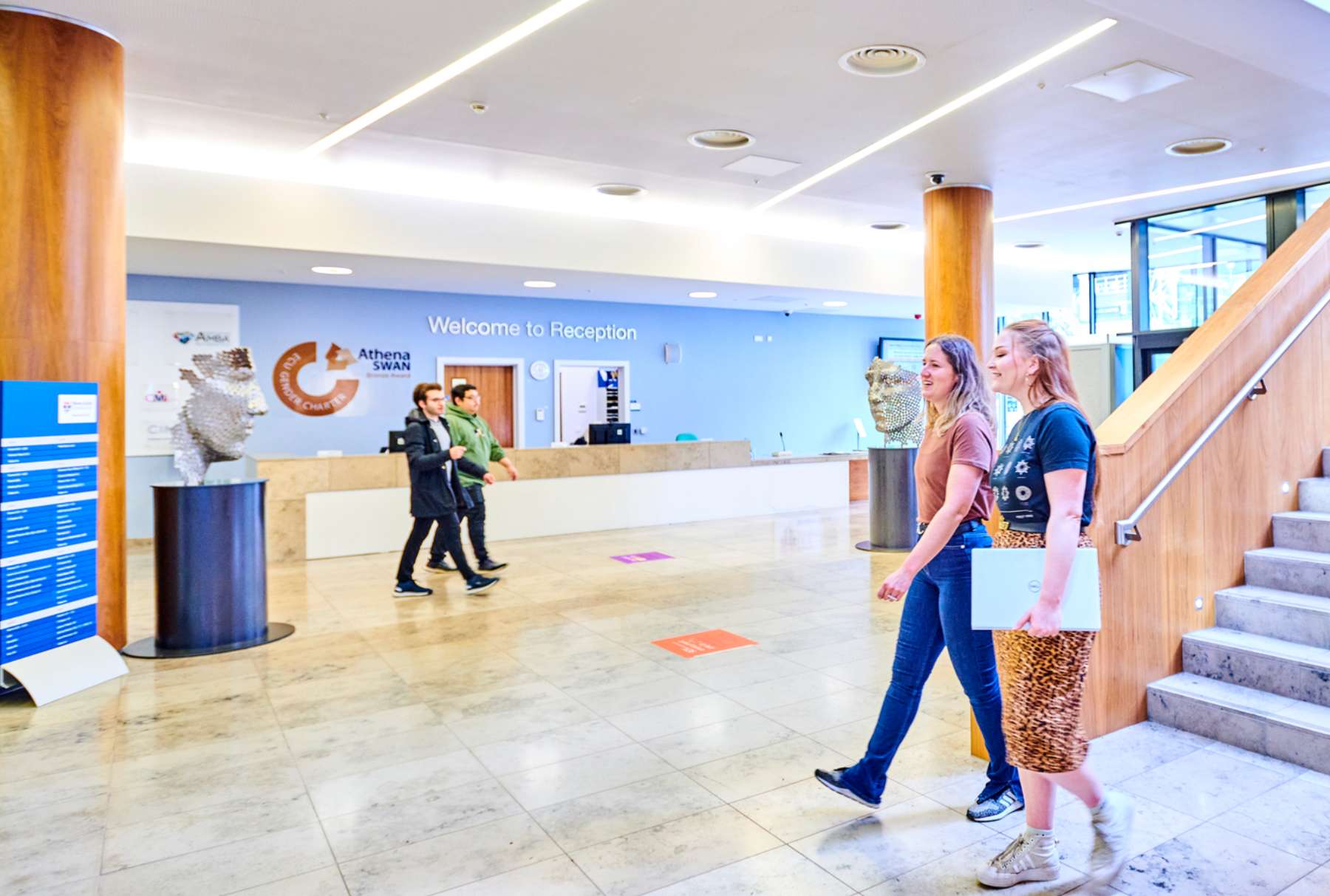Becoming an ‘Inclusive’ Leader: What does this mean?
In this article, Dr. Nicola Patterson and Professor Sharon Mavin discuss the meaning of inclusive leadership and its importance.
16 June 2023
We are still in the Great Resignation or the Big Quit and experiencing an epidemic of exclusion. A record number of people have left their jobs since the beginning of the pandemic and there are no signs of decline.
Becoming an ‘inclusive’ leader is now expected from many organisations – but what does this mean?
Some see inclusion as understanding equality legislation and acting accordingly. Others view inclusion as something more meaningful – something that becomes core to their leadership.
Here we outline our understanding of inclusive leadership, introduce you to a framework for inclusive leadership –based on uniqueness and belonging – and offer some examples of how we develop inclusive leadership.

What is inclusive leadership?
According to the Centre for Creative Leadership, inclusive leadership is shown through ‘individuals who are aware of their own biases and actively seek out and consider different perspectives to inform their decision-making and collaborate more effectively with others’.
This means leaders ensure all members of their team:
- are treated equitably
- feel a sense of belonging and value
- have the resources and support they need to achieve their full potential.
We understand that inclusive leadership is really about people; how leaders develop self-awareness to support increasing participation and decreasing exclusion (1) for all team members. This translates into a set of positive leader behaviours that facilitate group members ‘feeling that they belong in the team or group while maintaining their uniqueness as they fully contribute to group processes and outcomes’ (2).
Belonging and uniqueness in leadership
At Newcastle University Business School, our approach to developing inclusive leadership through our programmes is based on a framework using Shore et al., (2011) where inclusion is reflected through an individual’s uniqueness and whether they feel they belong.
For us, inclusion is the degree to which individuals feel they are group members in ways which satisfy their needs for belonging and uniqueness (3). This includes issues of equality and equity but extends to include everyone. For leadership, it is a way of thinking and doing, which is not reliant on equality legislation. For example, Shore et al., (2011) (4) outline:
- individuals want to be themselves at work (uniqueness) and be accepted. They also want to feel they belong to the team and the organisation – that they are part of something;
- when a unique individual is an accepted member of the group, and the group values the unique characteristics, then individuals feel valued and respected;
- when someone feels they belong at work, they form and maintain strong, stable interpersonal relationships (5);
- we are motivated to protect our uniqueness and to keep both belonging and uniqueness in balance;
- when individuals and groups feel they belong, they have insider status, share information, participate in decision-making, and have a voice. This is likely to have a positive impact on group feelings of inclusion;
- those groups that simultaneously integrate uniqueness and belonging, remove obstacles to full participation and can continually learn.
Therefore, individuals experiencing inclusion in a group or organisation ‘involves being a full part of the whole while retaining a sense of authenticity and uniqueness’ (6).
Embracing inclusive leadership involves empathy. It also involves emotion, emotional intelligence and some vulnerability. These can be intimidating terms.
How do you develop this approach?
For us to succeed in developing inclusive leaders and having inclusive impact in the learning space, Newcastle University Business School facilitates collective conditions and psychological safety (context, operating rules, shareable values, high trust etc.).
Not only does that help combat discrimination and reduce inequalities but it also supports all learners to bring added value to their leadership, their organisation and society at large.

Our leadership programmes are based on the foundation of inclusion, valuing uniqueness, and facilitating belonging. We do this by focusing on the following key elements:
- We begin with developing your self-awareness. We support you to become aware of your own biases and how these impact your leadership practice, such as your preferences for certain things, the values which guide your practice and your openness to different perspectives. Importantly we introduce you to new ways of thinking about vulnerability and ways you can safely challenge your assumptions through self-reflexivity, revealing blind spots.
- We facilitate learning to help you make sense of leadership in relation to your own experiences and leadership practices. You will consider leadership from a range of perspectives, allowing you to do a deep dive into your own understandings and practices of leadership. This supports you to recognise the importance of your leadership practice in relation to others – creating social awareness and connection – another key pillar of inclusive leadership.
- We also focus on the significant changes in work and society. We ask you to consider wicked problems in the context of social justice for your leadership in organisations, for society and the UN Sustainable Development Goals. This safely takes you out of your comfort zone to consider leadership in new innovative
Throughout the programmes, in a safe context, we consider aspects of individual uniqueness, and approaches to facilitating belonging. We do this through research, policy and your own experiences, combined with those of other learners. We encourage you to experiment with new inclusive leadership approaches in your organisation.
If you are interested in developing your leadership practice, you can find out more about the Strategic Leadership MSc and the Level 7 Senior Leader Apprenticeship on our website.
About the authors
Dr Nicola Patterson is Senior Lecturer in Leadership Development at Newcastle University Business School. Nicola is also the Degree Programme Director for the Strategic Leadership MSc and Level 7 Senior Leader Apprenticeship. As a qualified coach, Nicola sees reflection, reflexivity, and social learning as an essential part of life-long learning and critical for leadership development.
Professor Sharon Mavin is Professor of Leadership and Organisation Studies at Newcastle University Business School. She is an international scholar in gender, women's leadership, identity, learning, dirty work and organisation studies. Between 2017 – 2020, Sharon was the Director of Newcastle University Business School. Sharon was awarded the British Academy of Management Medal for Leadership in 2021 and added to the Northern Power Woman Power List, 2022.
References
(1) Booth, T., Ainscow, M., Black-Hawkins, K., Vaughan, M. & Shaw, L., 2000. The index for inclusion: developing learning and participation in schools (Bristol, CSIE).
(2) Randel, A. E., Galvin, B. M., Shore, L. M., Ehrhart, K. H., Chung, B. G., Dean, M. A., & Kedharnath, U. (2018). Inclusive leadership: Realizing positive outcomes through belongingness and being valued for uniqueness. Human Resource Management Review, 28 (2), 190.
(3) Shore, L. M., Randel, A. E., Chung, B. G., Dean, M. A., Holcombe Ehrhart, K., & Singh, G. (2011). Inclusion and diversity in work groups: A review and model for future research. Journal of management, 37(4), 1262-1289.
(4) Shore, L. M., Randel, A. E., Chung, B. G., Dean, M. A., Holcombe Ehrhart, K., & Singh, G. (2011). Inclusion and diversity in work groups: A review and model for future research. Journal of management, 37(4), 1262-1289.
(5) Baumeister, R.F. and Leary, M.R., 1995. The need to belong: desire for interpersonal attachments as a fundamental human motivation. Psychological bulletin, 117(3), p.497.
(6) Booysen, L., 2013. The development of inclusive leadership practice and processes. Diversity at work: The practice of inclusion, pp.296-329.
